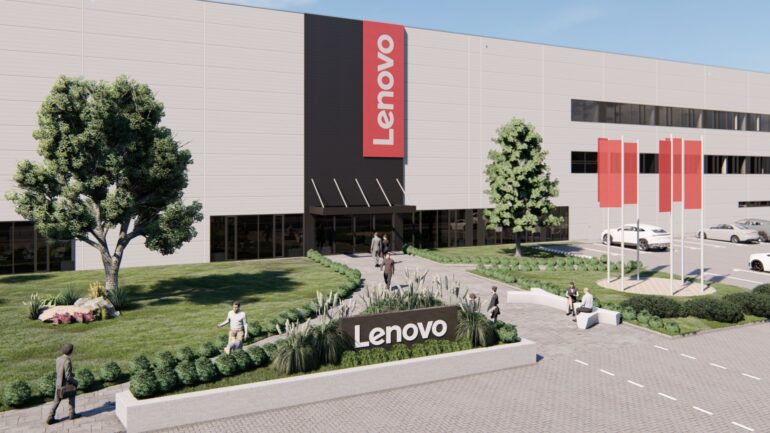TL;DR:
- Lenovo Capital emphasizes caution in its approach to large language model (LLM) investments, acknowledging the uncertainty surrounding dominant market players and the capabilities of LLMs.
- The venture capital arm of Lenovo, the world’s largest PC maker, considers LLMs to be a worthwhile investment.
- After a slowdown in the previous year, Lenovo Capital is expected to restore its pace of investment and focuses on hardware projects involving Big Data, extended reality and robots, as well as software applications, new energy, and smart medical care.
- The future of LLMs is still uncertain, with varying opinions on their limitations and investment opportunities.
- Lenovo Capital invests in Langboat Technology, a Chinese LLM startup, showcasing confidence in the potential of LLMs.
- The rapid adoption of superior AI technology is anticipated, particularly in fields where Chinese firms excel in applying new technologies.
Main AI News:
In its pursuit of exploring the potential of large language models (LLMs), Lenovo Capital and Incubator Group, the industry fund chief of Chinese personal computer giant Lenovo, has expressed the importance of a cautious approach, given the uncertainty surrounding the emergence of dominant market players. He Zhiqiang, President of Lenovo Capital, acknowledged that while basic LLMs represent a significant investment in science and technology, the ultimate form and capabilities of neural networks trained by such models remain unknown. The competition between OpenAI and Google, the creators of these models, adds to the intrigue. Nevertheless, Lenovo Capital, as the venture capital arm of the world’s largest PC maker, recognizes the value of investing in LLMs, citing them as a worthwhile pursuit.
Wang Guangxi, a partner at Lenovo Capital, affirmed the company’s intention to regain its momentum in investments this year after experiencing a slowdown in the previous year due to market challenges. Lenovo Capital primarily focuses on hardware projects related to Big Data, extended reality, and robotics, while also exploring software applications, new energy solutions, and smart medical care.
The future of LLMs remains a topic of debate and speculation among government agencies, internet giants, startups, and artificial intelligence experts, as Wang highlighted. Opinions vary regarding the future prospects, limitations, and investment opportunities associated with LLMs. Entrepreneurs and investors are grappling with the question of where to focus their business initiatives and investments to establish AI capabilities and industry dominance, Wang added. Lenovo Capital has shown confidence in the potential of LLMs by investing in Langboat Technology, a Chinese LLM startup that successfully secured nearly CNY100 million (USD14 million) in pre-Series A financing in February 2022.
The rapid adoption of superior AI technology is anticipated once it emerges. In the era of the internet, Chinese firms and talents have demonstrated remarkable prowess in the application of new technologies. Therefore, Wang predicts that AI-generated content will find extensive utility across various fields as the technology progresses to a certain degree.
Advantages of Corporate Venture Capital
Promoting collaboration between startups and established companies holds the key to accelerating AI development. Lenovo Capital, as the corporate venture capital arm of Lenovo, capitalizes on the opportunity to seek valuable business partnerships for its parent company. By fostering a mutually beneficial ecosystem, Lenovo Capital can leverage its investments to explore the potential applications of LLMs. Through strategic investments, Lenovo Capital facilitates talent and technology exchanges with its partner companies and even explores deeper capital cooperation, including mergers and acquisitions. The Beijing-based PC manufacturer represents an enticing prospect for startups, who greatly value the resources that Lenovo Capital can provide. It comes as no surprise that approximately 50 percent of the startups invested in Lenovo Capital have established business partnerships with the parent company.
Conclusion:
Lenovo Capital’s prudent approach to LLM investing, along with its emphasis on collaboration and strategic investments, reflects the cautious yet optimistic stance of a major player in the market. The uncertainty surrounding dominant market players and the future of LLMs calls for a measured approach, but Lenovo Capital recognizes the value and potential of these technologies. By fostering collaborations and leveraging its position as a corporate venture capital arm, Lenovo Capital positions itself to capitalize on the opportunities presented by LLMs and contribute to the acceleration of AI development. The company’s strategic investments, such as Langboat Technology, showcase its confidence in the future of LLMs and its commitment to exploring their potential applications. As the market continues to evolve, Lenovo Capital’s approach sets a precedent for carefully navigating the landscape of AI technology.

